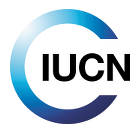Analysis of the Phoretic Relationship Between Whale Sharks (Rhincodon typus) and Remora (Remora remora) in the South Ari Atoll Marine Protected Area of the Maldives, as a Non-Invasive Associative Method for Classifying Levels of Recuperation in Sharks Following Deep Dives
Abstract
An interesting first assessment of the validity of using an associative host to assess behaviour in whale sharks. This completely non-invasive approach explores a subjective observation based on the overarching hypothesis the MWSRP holds for why whale sharks use the South Ari atoll Marine Protected Area as an aggregation site. This dissertation was conducted by a student from the University of South Wales who did her field research with MWSRP in July 2015.
Abstract; “Whale sharks partake in deep dives to feed on pla
Remora-as-External-Indicators-of-Whale-Shark-Thermoregulation-Stage.pdf (1137 downloads )
nkton during diurnal migration. As whale sharks are ectotherms, these deep dives where colder, oxygen depleted waters are experienced affect the metabolism, cognitive ability and physiological aspects such as muscular function in this species.
Such deep dives are often followed by prolonged surface swims in a pattern of behaviour known as oscillatory vertical displacement. It is widely theorised that these surface intervals are a form of thermoregulation behaviour in an attempt to recuperate from the physiological limitations experienced as a result of deep dives. It is therefore assumed that the longer a shark has spent in warmer surface waters, the more active it will be due to greater recuperation time and thus, improved muscular and cognitive ability.
Whale sharks are found year round in the South Ari Atoll Marine Protected Area (S.A.MPA) of the Maldives, where they play host to remoras; it has been noted that remoras are almost always found attached to more active sharks.
This study statistically analyses the association between remora attachment and whale shark behaviour of those individuals frequenting the S.A.MPA, in an attempt to establish whether remora attachment can be used as an associative method for classifying recuperation levels in whale sharks.
Surveys were conducted for a period of one month in collaboration with the Maldives Whale Shark Research Programme (MWSRP) during the wet, southwest monsoon season. The data collected in situ, along with a historical data set of 2661 encounters was used in the statistical analysis of this study.
The significance of association between remora attachment and whale shark behaviour was statistically tested, as well as the influence of morphological, environmental and anthropogenic variables on both shark behaviour and remora attachment likelihood.
Results from the study revealed a significant association between active sharks and remora attachment, yet also highlighted the importance of alternative determinants in both whale shark behaviour and remora attachment likelihood.”

